#and i get for storytelling purposes any journey away from that ideology
Text
i have to remember when i critique star wars as being v liberal my def of liberal is farther right i think than other people's definitions of it are
#ch posts#for me now liberal means the mostly spineless ''politicians like AOC nnem are my friends and decorum + appearance are more important than#actual change'' types#status quo support with a face lift#so if/when I say something like Crosshair tbb and Kylo Ren ST are v liberal its like#the appearance that things are changing for the better#without the acknowledgement of how violent those ideologies are#and how one does not simply stop being fash one day#and how no it cant be cured with forgiveness and solitude#and i get for storytelling purposes any journey away from that ideology#has to be shortened bc TV/movie runtimes#but Andor (while not perfect) at least understands that people#*ppls reasons for joining it are meaningless#they had depth without demanding empathy!#thats how i wanted to phrase it#overall not forgiving the way some others are#im tired of redemption arcs i really am
10 notes
·
View notes
Text
The Rebel/叛逆者: A Review of Sorts
After being only semi-invested in the Rebel, I ended up getting so into it in the final weeks of its release, I’ve shelled out on IQIYI premium just to get the final couple of episodes a few days earlier.
That’s right kids, it’s a Review of Sorts. Unfortunately, I could not find a translation of the novella the drama is based on, so will be looking at it as a separate entity.
Most of this post is spoiler-free, however I have dedicated a few paragraphs at the end of it to discussing the final episode, as there are a few specific things about it I wanted to mention. There is a clear spoiler warning before that part.
If you don’t want to risk it, TL;DR version of this review goes something like this: Rebel is very decent, and positively one of the best things that I have seen to come out of China since I’ve jumped into that particular rabbit hole. It’s pretty well written, it’s very beautifully dressed and shot, and the cast is killing it. I thought it dropped the ball a little in post production, and I did not always love the pacing. Other than that, it’s incredibly decent, and well worth watching, unless communist propaganda really irks you, in which case stay very well away.
I have been having many conversations with @supernovasimplicity all the way through watching this drama, so there are likely to be some thoughts here that are influenced by those.
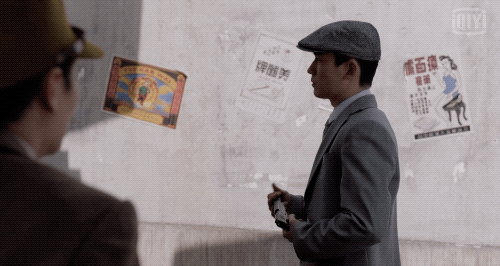
The story centers around Lin Nansheng, a struggling servicemen in the Guomingdang party. He has a great analytical mind, and absolutely no emotional capacity for his job. He has trouble handling violence, he is impulsive, he cannot speak to his superiors without bursting into tears, and has nothing even remotely resembling a poker face. And that is what makes this drama as enjoyable as it is.
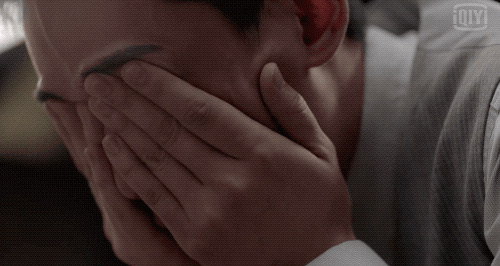
I don’t think Lin Nansheng’s journey would have been nearly as exciting had he started it from a place of competence. He botches up everything he touches because his big brain switches off the moment his emotions kick in. And so, when you see him grow in confidence, learn to control himself, learn to fake his smiles and compliments, you can’t help but feel a strange sense of pride. It also makes Lin Nansheng very likeable as a character for reasons other than Zhu Yilong’s ability to look like a bush baby.
It did take me a while to feel fully engaged with his performance - not because there is anything lacking in it, but just because it’s hard to be truly surprised by his choices after the exposure I have given myself to his work. That said, at about a half-way point I got charmed by him anyway, and there were quite a few scenes that were truly mesmerising. There were scenes where he broke out of the familiar mould of big unguarded eyes and fluttering wet eyelashes, and tried something that was not pretty: every time to a great success. I am hoping to see more of that in his future work.
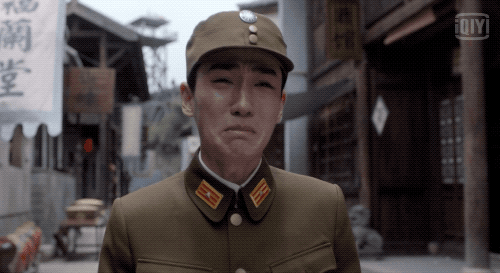
I really wanted to like the female lead, Zhu Yizhen, but unfortunately both the way she was written and the way she was performed by Tong Yao left me somewhat cold. It did not help of course that the screenplay ended up sidelining her at every turn, leaving her with very little personal agency. She was set up so interestingly, but in the end her sole purpose became being someone for Lin Nansheng to pine over. It is particularly curious from a perspective of meta storytelling: seeing how this is all centered around superiority of communism, which as a whole was, arguably, ahead of its time in the matters of binary gender equality.
The ensemble cast of the drama is stunning. Wang Yang came very close to stealing the show at several points as Chen Moqun, somehow managing to make his rather unlikeable character interesting. I can say the same thing about Zhu Zhu who absolutely shined as Lin Xinjie, showing an incredible range and imagination in her performance.
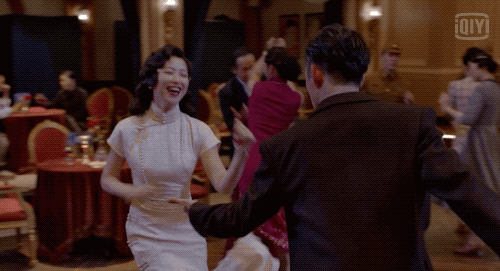
The overarching story of the show is engaging, with some incredibly suspenseful elements; every narrative arc including a nice progression through it. As spy thrillers go, it was fairly well plotted. You could if you go looking for a few things that did not pay off in a satisfying way (notably, the Chekhov’s cyanide capsule), but you overall the story really was well told for the most of it.
I did, however, feel like the pacing started to fall apart in the last quarter of the drama. Last episode in particular really did feel rushed, not just due to its pace, but also in a way it failed to pay off the final mission in any visible way. There will be more on that in the spoiler section of this post.
Important to note that The Rebel is a show made in Communist China in the year 2021. It does not ideologically side-step from the path that was laid out for it by that fact. Which is to say, it is, undeniably, filled with propaganda. Communists are the good guys, and if you think a good guy (or gal) is not a communist, they probably secretly are. With one exception of a friendly character who is not a communist, and whose fate we actually never find out. Curious, that.
The Rebel is not a kind of a show where censorship-appeasing scenes are shoehorned in. It’s a kind of a show in which the main theme is Sacrifice For the Party.
Aside from the being the moral vector of the show, Mao’s gentle teachings explicitly help get Ling Nansheng out of prolonged depression following his injury, and almost annoyingly, this sat incredibly well with the character, as he was written. Lin Nansheng is conceived as this naive idealist who wants to be on the front line, who needs validation and support of others. His - and I can’t believe I’m saying this - his being disillusioned in his beliefs and choosing to join a party which includes people whom he likes and trusts makes sense. Him finding this one thing that gives him hope and letting it propel him into gaining confidence and competence makes sense.
In many ways, the Rebel is a story of Lin Nansheng’s failure to become an antagonist within the world of the drama.
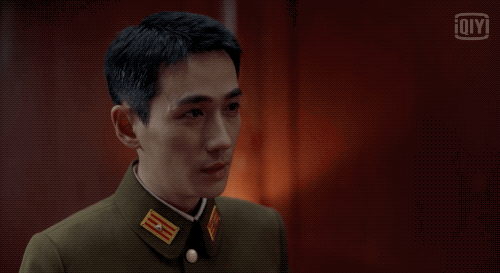
I have honestly spent this past couple of weeks pondering whether being well written makes political propaganda better or worse, whether the subtlety of it makes it more or less palatable, whether it’s enough, as a viewer, to be aware of it to shrug it off. Ultimately, this is not something I could or should make moral judgements on, but I do believe that it’s possible to acknowledge the fact that propaganda exists in the drama, and still appreciate it for a good piece of television that it is.
That said, I am very well aware that me being kind of okay with it stems entirely from my own removal from the culture this is made in, and I am, perhaps, lucky to even have a choice as to whether I want to engage with a product which is, undoubtably, here to dress political ideology in fancy clothes.
I have, on the other hand, also seen many things in Russian media of the “Annexation of Crimea is Good Actually” variety and those make me feel very unwell, so feeling somewhat at ease with blatant political propaganda in Chinese media makes me the biggest hypocrite.
But, I digress.
Before we go into some specific plot-related things, I would like to mention that the Rebel has this weird dichotomy in which the production is sublime, and the post-production… not so much. The show very well shot. Every element of it sits perfectly together, not a single prop out of place, not a single extra underdressed, not a page of script not put to good use. It’s lit to perfection. It’s scored beautifully. So much of this show is just stunning.
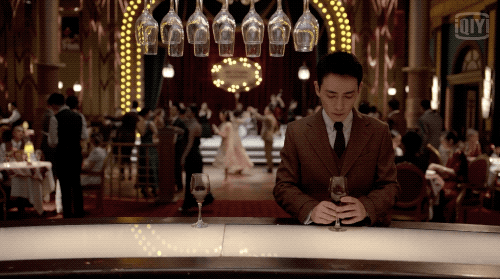
And then… there is post-production.
This is not even about bad CGI (and the CGI is, indeed, bad), it’s just that most of post-production as a whole feels rushed.
Starting with surprisingly imperfect editing, which at times just fails to make the scene flow together. The final line of dialogue would be spoken within a scene, and it would fade to black instantly without a single breath to indicate a full stop. A montage sequence would be created, but every shot within it condensed to a second, making it feel incredibly fast-paced when the effect should be the opposite. There would be a cut away from a speaking character and to the same speaking character from a slightly different angle, making it dynamic without any reason to do so. There are a couple of truly startling jump-cuts.
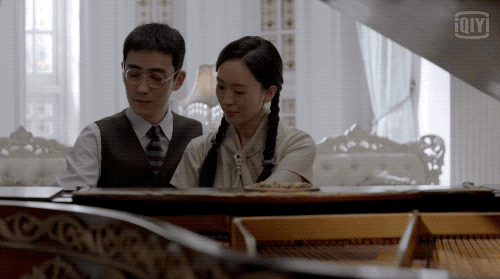
I did not speed this gif up. This is part of a romantic montage, edited like it’s a goddamn action sequence.
And of course dear old friend slowing down footage shot at 24FPS. Please don’t do this. You think no one notices - but we do.
There are other tell-tale signs of production rushing to the finish line: occasional, but very noticeable ADR glitches, very sloppy job done at sound mixing, which contribute to parts of the show feeling ever so slightly off.
It’s not unforgivable, but it does make me wish the same amount of care and efforts that went into shooting this drama would also go into it after it was all in the can.
Oh, and just because if you know me you know I have a professional fixation on fights, and I am happy to say most action scenes are toe-curlingly delightful. Hot damn those fights are good. I am absolutely in love with the shot below, for example. Placing an actor behind a piece of set so he can exchange places with the stunt double during a one shot is such an old trick, but the execution, timing and camerawork are just... flawless. This is what perfection looks like.
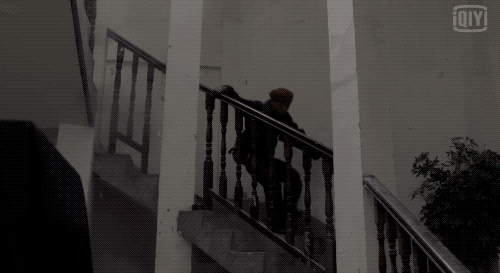
Now we got all that out of the way...
SPOILERS FOR THE SERIES FINALE BELOW
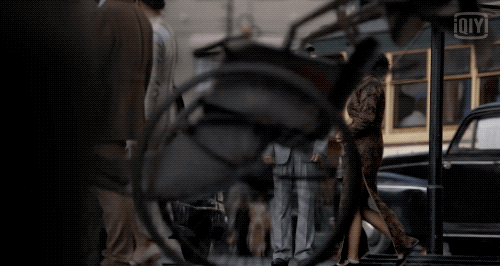
Here’s the thing. I wanted to love the ending and I found that I could not.
The final mission was presented as important, and honestly the scene in which Zhu Yizhen is sending the vital message out as Lin Nansheng holds his ground in hand to hand fight is incredibly dynamic. Party, this is due to the fight itself being incredibly well choreographed, yes, but it’s also where it sits within the narrative, how high the stakes are for everything surrounding it.
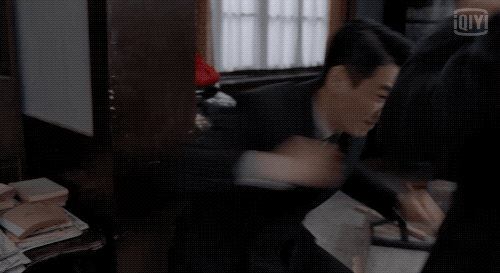
But then, the tension all but bleeds out. The Important Message is sent, the fight is won, and we are treated to ten minutes of a very slow car chase, problem of which is not even its speed as much as its placing within the story. As in, by this point both of those operatives have lost their cover, and completed their Very Important Mission. It would be very sad if they died, but their survival does not technically contribute to their cause. Moreover, Zhu Yizhen getting mortally injured in order to protect Lin Nansheng as part of her mission read a little empty when the mission is technically over.
While I personally found Lin Nansheng slow recuperation and his low key ending enjoyable, I think I would have preferred to have seen a more tangible pay-off to all the sacrifices made in the name of “bright communist future”, just a little more justification for every moment of death and despair we witnessed. I would have certainly at the very least preferred to see Wang Shi’an’s death on screen. Considering how many likeable characters martyred themselves on screen, denying us the death of the one antagonist just seemed cruel.
I really did love the ambiguity of the final few scenes however, if we consider the children choir at the end a fantasy. The idea that Lin Nansheng will live out his life in this hope that Zhu Yizhen is still alive, imagining her just outside of his field of vision, his only joy being in this fantasy of her… now, that is incredibly strong. I equally like the idea of rest being promised to him at the end of his journey, and said rest being painful, and slow and unwelcome.
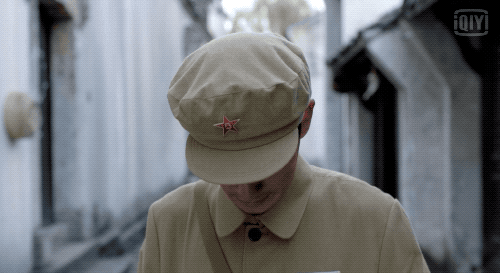
But it felt like as they chose not to to lean into the “sweet” part of the bitter-sweet tone of the ending and we’re unable not commit to the “bitter” part either, so it lands with a splat which is somewhat lacklustre.
---
This concludes my thoughts on the Rebel.
I am more or less out of Zhu Yilong’s filmography to watch, which is probably a good thing at this point. I have just emerged out of several back to back work projects - literally today - and will hopefully once more have time for things I grew to enjoy doing during the lockdown.
Those things, if you have not guessed, include watching Chinese television and writing things about Chinese television.
45 notes
·
View notes
Text
A Final Fantasy Ranking
Over the course of the quarantine, and because I had such a good time with the Final Fantasy VII Remake, I've ended up blazing through a ton of Final Fantasy games. Since April, I've played IV, V, VI, VII, VIII, IX, X, XII, and XIII. 6, 7, 9, and 10 I'd beaten before. 4, 12, and 13 I'd played to some capacity before. 5 and 8 were completely new experiences. I had no interest in going further back than IV, since it was the first one to really put any effort into character work, and I didn't play either MMO because MMOs don't really appeal to me (I'm planning to try XIV whenever this new update drops that makes the story mode more accessible, but it keeps getting pushed back so oh well). I also didn't replay XV because I've played XV three times and watched other people play it in its entirety twice, so I have a much better handle on it than any other game in the series.
Anyway, I didn't really have any plans for what I'd do with this, besides get a better understanding of the series as a whole, but I was kinda inspired to do my own Final Fantasy ranking. I'll probably be a bit more detailed than I should be because I tend to overanalyze my media and end up having too much to say. I’m actually not placing VII Remake in this ranking half because I regard it as a spinoff and half because it’s not yet a complete story, even though Part 1 is unquestionably a complete game. If I were to put it somewhere, it would probably be close to the top, possibly even in second place. Also worth noting that this is gonna have SPOILERS for every game I discuss here. I really just wanna use this as a place to nail down some of my thoughts on these games, so they’re pretty stream of consciousness and I didn’t bother avoiding any details from the plots.
10: Final Fantasy VIII.
I don’t think there’s another game in the series with a more obvious corporate hand in it than VIII. It’s kinda the Fant4stic of FF games; there are the bones of a substantive game in there somewhere, but every aspect of the game is such a bald attempt at checking off a 1999 list of “things gamers want” that the whole affair feels hollow and sickening. A major trend I’ve noticed throughout this series is the extent to which FFVII’s success pushed the architects of almost every subsequent game to try to recapture whatever it was that worked about VII, and VIII got the worst of it. It’s got the sullen guy with a special sword. It’s got the sci-fi. It’s got the terrorists with hearts of gold fighting against an oppressive state. It’s got the train scenes. It’s got the case(s) of amnesia that hides the true premise of the story. It’s got the ability to give any character any loadout.
Besides that, they kinda crammed in just a bunch of stuff popular with kids at the time. Jurassic Park? It’s in there. Beauty and the Beast? Here’s the ballroom scene. Hunchback of Notre Dame? Here’s that carnival. Alien? Now you’re alone on a spaceship running away from a horror monster. Saving Private Ryan? The party shares brains with war veterans and dreams of their experiences at war I guess. Half of anime? It’s all about a high school for mercenaries and the party is trying to get back in time for the school festival. Fandom culture? Zines are a collectible item, and each one you find adds an update to Selphie's Geocities page. It also has astronauts, and transformers, and a haunted castle, and a prison break, and Rome, and Alpine Wakanda, and war crimes, and lion cubs that have attained enlightenment, and there’s almost no connective tissue from one idea to the next.
Also the junction system is convoluted and terrible, using magic makes your stats worse, all enemies level up every time you do, and I couldn’t tell you which character excelled in what stats. The characters were all very flat, and the first time I felt like I was seeing the characters interact in ways that helped me to understand them was in the cutscene that plays during the end credits.
Also the female lead’s role in the story changes entirely with no warning every five hours or so. She’s a terrorist, oh no she’s aristocracy in the country she’s terroristing against, oh no she’s jealous of the others because they grew up together and she didn’t, oh no she’s Sandra Bullock in Gravity, oh no she’s the villain and it’s too dangerous to let her out, oh no it’s actually fine and they were bad for locking her up.
It’s an absolute disaster of a game. However, the music and background art is absolutely beautiful. Maybe they never gave me a good enough reason to be in an evil time traveling haunted castle, but damn is it a gorgeous rendering of an evil time traveling haunted castle.
9: Final Fantasy XII.
I’ve known for years that FFXII had issues in development. The writers came up with a story for it, and execs got scared because there were no young characters and they’d convinced themselves that young protagonists are what makes games sell. So two more characters - Vaan and Penelo - were added, one was framed as the protagonist of the story, and the entire story was rewritten so it could feasibly be from his perspective.
While the two characters they added are egregiously tangential to the plot, XII honestly has no protagonist. The writers originally wanted Basch to be the protagonist, but his entire arc is really just following Ashe around and being sad about his evil twin. Ashe is probably the most important to the story, but doesn’t have much presence for a good chunk of the story, and makes her most character-defining choice offscreen before having it stolen from her by a side character. Balthier has the largest presence in the story, and is most closely related to most of the events of the story, but has pretty much no role in the ending.
Honestly, if I were writing FFXII and told it needed a young protagonist, I would have aged up and expanded the role of Larsa, the brother of the main villain, who shows up as a temporary party member from time to time. The entire game is about family ties, and a journey spotlighting Larsa could have involved his learning about Ashe, Basch, Balthier and Fran’s family situations and using their experiences to grapple with his own. Damn, now I’m sitting here thinking about how good that could have been.
As it is, the game feels disjointed and aimless, and the ending is so bad it’s farcical. When I reached the ending, I watched Basch and Ashe forgive Basch’s evil twin for his villainy rampage, harking back to the moment earlier in the game when Ashe turned down the chance to gain powers that would have allowed her to avenge her country because she realized that those powers could also drive her to hurt innocents in the crossfire. In this moment, I realized how Vaan fit in as the protagonist of the game. “Oh, he’s going to realize that violence begets violence, and that he must break the cycle by forgiving Vayne for the death of his brother. He’s going to let go of that hatred he’s been trying to push onto someone for so long, and it’ll finally allow him to heal.” I realized that even though the road to this point was rocky, the writers had managed to craft a satisfying ending from the seemingly disparate pieces of this uneven plot.
And then Vaan picked up a sword and screamed AAAAAAAAAAA and charged Vayne down and stabbed him, and Vayne turned into a shrapnel robot dragon and exploded all the star wars ships and I threw my controller aside and laughed uncontrollably while my characters beat him up and completed the game on their own without any further input from me.
Oh yeah, the battle system is also incredibly boring. Instead of battling, the player writes up an AI script for each character, then lets them act based on those scripts. I would straight up put the controller down and watch youtube videos whenever a group of enemies showed up. I was pretty excited about the job system, but then there didn’t really feel like much of a difference between jobs, and my characters all behaved pretty much the same as each other.
The hands-off battle system, unfocused story, lethargic voice acting, and tuneless music all left me pretty uninvested in the whole affair. The art style and locations are beautiful, though, and it did make me want to eventually check out some of the Tactics games, which take place in the same universe but are supposed to have excellent stories and gameplay.
8: Final Fantasy XIII.
I’m not sure I’ve ever had two such opposing opinions of a game’s story vs. its gameplay. This game is the only one that plays with a bunch of story elements from FFIX, which did a lot to endear it to me. It’s sort of a game in which the protagonists are Kuja, the villain of IX. Like Kuja, they are created as tools by an uncaring god for the purpose of fighting against one world on behalf of another world, and are subsequently forced to grapple with the horrors of having an artificially shortened lifespan.
The story actually has a lot of Leftist themes, too. The gods of that universe spread ideology among the populace, and the people unquestioningly believe these false stories, as the gods have provided for them for as long as there has been written history. Much of the character arcs center on the characters being forcibly removed from their places within those ideological frameworks and having to unlearn what they’d always believed to be objectively true about the world.
So the story actually is pretty good, but it’s held back by some really clumsy storytelling; it constantly uses undefined jargon, has almost no side characters with which it might flesh out the world, actively fights against players trying to glean information from environmental details, and maintains (at least for me) a weird disconnect between the characters in the gameplay and the characters in the cutscenes. I think this partly stems from Square’s original failed plan for FFXIII to be the first game in a much larger series of games sharing themes and major story details. Despite these issues, however, the characters are all likeable and (mostly) believable, and their interactions are grounded in real emotional weight even while their universe feels intangible.
This all got dragged down by the gameplay, which is total dogshit. It’s got the worst battle system I think I’ve seen in an RPG. The game only stops being doggedly, unflinchingly linear about thirty hours in, the whole game took me about fifty hours, and I spent the last fifteen hours beating my head against each individual battle, waiting until the system hiccuped long enough to accidentally slide me a win. That meant I had about a five hour window of euphoric play, convinced that I actually loved this game, thrilled with every new experience it gave me, and excited to see what would happen next. I guess those five hours are what pushed this game over XII in my ranking.
7: Final Fantasy V.
Until FFXV, this game was the last of the “Warriors of Light” games, in which the game follows a party of four set characters for its entirety. To this day, it’s the last of the “Warriors of Light” games to let the player customize which character holds which roles through the job system.
FFV’s job system is the reason to play the game. Its story is mediocre, and its characters are all fairly flat, but there’s something viscerally satisfying about building party members up in jobs that might enhance the role they ultimately will fill. For my mage character, I maxed out Black Mage, Blue Mage, Mystic Knight, Summoner, and Geomancer. Then at the end, I switched her to a Freelancer with Black Magic and Summoning, and she kept all the passive skills for those jobs and also the highest stats across those jobs.
It was super fun and kind of a shift of focus for me, since I tend to place story above anything else in games. Despite the story not being special, though, the game’s writing is actually a ton of fun. It’s definitely got the most comic relief in the series, and I came away loving Gilgamesh as much as everyone else does.
And while it’s nothing special graphically, it does have some really cool enemy designs, and the final boss design is one of the most memorable ones they’ve ever done. Which is impressive because I keep having to look up Exdeath’s name because the character himself is super forgettable.
6: Final Fantasy IV.
This wasn’t the first game in the series to feature actual characters with names and depth, but I have no interest in playing FFII, so it might as well be. I actually played the DS Remake for this game, so it definitely had some quality of life improvements, like full 3d characters and maps, voice acting, an updated script, the ability to actually see the ATB gauge, and the ability to switch to other characters whose turns are ready without using a turn.
Apparently one thing the remake didn’t do was rebalance the difficulty for more modern sensibilities. Instead, this remake is...harder? It requires more grinding than the original? Why??
Either way, though, the story is actually solid! The game opens on its protagonist, Cecil, committing a war crime on the orders of his king, who raised him as a child. The first ten hours of so of the game follows Cecil as he tries to understand why he was ordered to kill so many innocents, turns his back on his country, and works to redeem himself.
This arc is reinforced by the game mechanics, too, which is super clever. His redemption is marked by a change in job from a Dark Knight to a Paladin, which also resets his level. For a time, his life is considerably harder because he’s finding his footing as a new person, which is marked by battles which had been easy becoming much harder for the player for a time.
This game places storytelling over gameplay more than I think any other game in the series. Each character is locked into a job, which I much prefer in my RPGs to games where characters function pretty much interchangeably. I dunno if it’s because I cut my RPG teeth on Tales, but it really bugs me when I can give Tifa the exact same loadout as Barret. I want the lives of the characters to bleed into their functions as gameplay devices.
However, the developers clearly had a ton of different jobs they wanted to add to their game, but hadn’t figured out how to allow for the player to switch in and out party members in standby. To fix this, they increased the in-battle party to five characters rather than or four (or the later constantly frustrating three), rotated the roster a ton, and had a ton of characters who straight up leave permanently. One character dies and never comes back. Two characters die and only are revived after it’s too late to rejoin the party. Four characters end up too injured to continue traveling.
This let the developers make a ton of jobs, but it doesn’t let the player exploit these jobs to their fullest. Characters’ stats reflect their role in the story, as well. One character is quickly aging out of adventuring, so his magic stats increase on levels, but his attack and defense stats actually decrease, signifying his failing body. Another character has already achieved some form of enlightenment, so he gains no stats when he levels up at all. The purpose of IV is the story, over any other aspect of the game, which makes it even more mindboggling that the remake would have increased the difficulty.
Besides that, the biggest issue I had with this game was the overbearing constant drama of it. While there were a few more lighthearted parts, they were mostly relegated to NPC dialogue and sidequests. The characters in this game don’t become friends so much as they become companions who bonded over shared tragedies, and this makes for quite a few scenes of every character separately wallowing in their own immeasurable sadness. I played FFV directly after this game and the light story and jokey dialogue was a much-needed palette cleanser.
5: Final Fantasy VI.
Before the unexpected success of FFVII irreparably changed the franchise, Square constantly mixed up the story formula for the series. IV, V and VI all handled their stories really differently from each other, and what I remember of III also felt fairly different from the games that came after.
Every game from VII on had a very clear protagonist (except XII, whose botched protagonist was still clearly marketed as the protagonist). The concept of the Dissidia crossover series is built on the idea that every FF has a protagonist at the center of its story. FFVI’s Dissidia character is Terra, but Terra is not the protagonist of FFVI.
Apparently while developing FFVI, the directors decided they didn’t want the game to have a clear protagonist, so they asked the staff to staff to submit concepts for characters, and they’d use as many as they could. This game has fourteen characters, each with their own fun gameplay gimmick in battles. Three of the characters are secret, and one can permanently die halfway through if the player takes the wrong actions. Of these fourteen characters, the main story heavily revolves around 3-6 of them, while five more have substantial character arcs.
There’s kind of a schism in the fandom over whether this game or VII is the best one in the series, and I can see why; this game is absolutely fascinating. No other game in the series has done what this game did, which means it’s one of the two FF games I really want to see remade after they complete this VII remake.
The first half is very linear. It breaks the beginning party into three pieces, then sends each character to a different continent, where they meet more characters and build their own parties before everyone reunites. Once the story has taken the player everywhere in the world, the apocalypse hits. The villain’s evil plan succeeds and tears the entire world apart.
The second half of the game picks up a year later with one character finally getting a raft and escaping the island on which she’s been marooned. In this half, the player navigates the world, which has all the same locations, but in completely different parts of the map. The driving factor for much of the second half is to learn from incidental dialogue where each party member has gone in this new world, to track them down, and to try to fix some of the bad that’s been done to the world before finally stopping the villain who destroyed it.
It’s unique and clever and occasionally legitimately tugs at the heartstrings some, which is impressive for a poorly translated SNES game. The final dungeon is a masterpiece all on its own. It requires the player to make three parties of up to four characters, then send them in and switch between them as new roads open. This way, the game manages to feel like an ensemble piece up to the very end.
4: Final Fantasy VII.
As I previously mentioned, there’s kind of a schism in the fandom over whether FFVI or FFVII is the best game in the series. Neither is the best game in the series. FFVII is better than FFVI. Oops.
When I was first drafting up this list, it was before I’d reached my replays of VI or VII, and I tentatively placed them next to each other, with the strong assumption that I’d end up placing VI a bit higher than VII, since it has so many strongly differentiated characters with solid story arcs, beautiful artwork, great music, etc. etc. Then I reached FFVII and not even four hours in, I realized it would have to be higher on my list than VI.
VI has a better battle system, its characters are much more differentiated by their gameplay, its character sprites have aged much better than VII’s character models, and it has four party members in battles instead of three. But I couldn’t overlook VII’s gorgeous artwork, sharp character work, and character-driven story. In the end, I had to give it the edge.
VII is a strange beast. It simultaneously really holds up and has aged horribly. The story is excellent and I love the characters, but the actual line-to-line writing is pretty bad, making the whole experience of the game a bit like swimming upstream; you’re getting somewhere good, but the age of the game is still pushing you back the best it can. Similarly, the background artwork is fantastic and gives the game locations a sense of place incomparable to anything that had come before it, but the character models are so low-poly that the two are constantly at odds with each other.
Still, the game is more a good game than it is an old one. I think it’s managed to duck the absurd level of hype around it by actually being very different from what the most popular images of it make it out to be, if that makes sense. The super futuristic techno-dystopia city only makes up a very small portion of the larger game, and most newcomers to the game won’t have seen Junon, or Corel, or Cosmo Canyon. Heck, I didn’t know Cait Sith or Red XIII were characters before I played the game for the first time. One of the many reasons I’m excited for the rest of this remake is to see newcomers to the story learning just how much variety there is to the world, events, and characters of this game.
FFVII also began (and pulled off really well) a number of storytelling trends that continued in subsequent games in the series. Obviously, almost every game since this one has a clear protagonist with a cool sword for cosplayers to recreate, and an androgynous villain whose story is closely linked to the protagonist (or one villain who is linked to the protagonist and a second one whose purpose is to look like Sephiroth), but it’s started broader, more quality shifts, too.
FFVII is the first game in the series to try to give all its characters arcs based on a similar theme, for example, a trend that has helped give it and future games a sense of thematic unity, especially in IX, X, and XV. Heck, that trend was why I almost came around on XII before they nuked it. It was also the first game in the series to have a real ending, rather than closing out with essentially a curtain call featuring all the party members, like they did in IV through VI (and I assume earlier).
Another common feature of FF games that it didn’t start with VII but certainly was canonized with it was the mid-game plot twist tying the protagonist to both the villain and the larger story. FFIV had this as well, of course, but I feel like the orphanage twist in VIII, the Zanarkand dream twist in X, and the time skip twist in XV were all meant to recall VII’s twist of Cloud’s…very complex existence (IX’s two worlds twist actually is a clear homage to IV, but it’d be hard to argue that Zidane’s connection to Kuja - and the character of Kuja generally - weren’t more influenced by VII).
2: Final Fantasy X and Final Fantasy XV.
Sorry, this one is a two-fer. I’m not gonna spend too much time on why I placed these two together in the #2 spot (I wrote a long thing on it here, if you’re interested). In summary, the games kinda mirror each other, in story and design. Each game can be seen in the negative space of what the other game leaves out, and at the end, the characters react to similar situations in completely opposite ways. For this reason, and that they’re of comparable quality, I think they’re best viewed as companion pieces.
FFX was the first mainline Final Fantasy game I ever completed, six years late. It was the first FF game with voice acting and many fully modeled locations. It also kinda marks the beginning of the series’ constant changes to the battle system.
That’s not to say the previous games’ battle systems didn’t also differ from each other, but they all had the same setup, with levels and an ATB gauge. This was the first game since III not to have any real-time element to its battle system, nor numbered levels gained through experience points. Since X, no two FF battle systems have been remotely comparable, which is cool and innovative and keeps things fresh, but also means I’ve been starved for just a regular ATB FF game for too long.
In many ways, FFX feels like a bridge between the PS1 games and the later games. It feels much more streamlined than VII, VIII, or IX, in terms of both storytelling and design. The game is very linear, pushing the player from one area to the next and not allowing much backtracking until the very end. It also loses the aging look of the PS1 games’ menus and UI, finally updating the classic font and the blue menus with white borders to fully modernized and sleek graphics.
However, movement still feels very similar to movement in VIII and IX, the music definitely evokes the PS1 games more than the later games, and most locations are portrayed with beautifully painted backgrounds, rather than modeled in (which I actually prefer, and I was glad to see that VII Remake has gone back to that in some places).
Voice acting in this game is phenomenal for 2001, and honestly on par with many contemporary games. I can’t think of a voice actor for the main cast who didn’t do a great job. Tidus’s narration, especially, is emotional and evocative in all the right ways. Grounding the plot in a very personal story about Tidus’s difficulty coming to terms with and proving himself to his abusive father keeps the story relatable and real.
Something interesting about my experience with X is that because it was my first Final Fantasy game, I thought for a very long time that the series was about organized religion, and the ways it is used to justify evil acts. This might be the only game of the ones I’ve played that is about organized religion, or even prominently features a religious doctrine, which really sets it apart from the rest of the series.
The game’s thematic unity is on point, even if there is a scene where they state the central themes a bit too plainly. Every character, and even the entire universe of the story, is held back by the past, and every subplot and the main plot revolves around finding ways to move forward and leave the past behind.
I love FFXV. It feels like a return to form after XII and XIII. It’s also probably the furthest any game in the series has strayed from the original formula. Battles are entirely real-time, and the game is a straightforward action game. There is very little time spent with menus, and even the leveling system has been stripped down to a few skill trees. It’s immediately obvious that the game was originally created to be a spinoff, not a main title.
FFXV is also probably too much a product of the current era of microtransactions and payment plans. The full story is spread out across *deep breath* a feature film, an anime series, an anime OVA, a standalone demo, two console games, four DLC story chapters, a multiplayer side game, a VR fishing game, four phone games (though really three phone games because A New Empire straight up isn't in that universe and also is terrible), an expansion including several entirely new dungeons, and finally a novel set to release sometime this year. That’s a whole lot of story. I’ve not played the phone games or the VR fishing game, or read the novel yet, but I’ve experienced all the rest.
But I also played FFXV when it first released, before any patches, before I knew there was a film, just the game all on its own. So you can believe me when I say that without any supplementary material, the game is still great.
It goes back to the FFI, II, III, V “Warriors of Light” system, where the party has four characters who do not change at all throughout the game. While this bugged me at first, I soon came to appreciate having a story where almost all character interactions involved these four characters. It meant I came to understand them well enough to feel like they were my friends, too. Most characterization in this game is understated, presented through small shared moments, dialogue, and body language as they travel the world together. Much like X, the overarching story might be expansive and far-reaching, but the real show is in the personal journeys the friends have.
Much of the first half of the game is spent exploring an open world, driving along the road and getting out of the car for pit stops or to explore the forests nearby. This is one of the very few games where I don’t mind just exploring an area without the promise of an upgrade or a new scene, just to see what’s around the corner, or to hear whatever banter the characters might engage in next.
The entire world of this game is gorgeous, and the orchestrated music is some of the best they’ve ever done. The main plot is beautiful, too. It’s bittersweet and emotional, with a charismatic villain and a twist that blew me away the first time I reached it.
The supplementary material is also mostly really quality. I’d recommend the Royal Edition over the original edition for sure, and to watch Kingsglaive as well. The anime series is quick and fairly fun, and Comrades expands on the universe in some great ways, but neither has as much bearing on the overall plot as the DLC chapters and Kingsglaive. I’m so in love with the DLC chapters, actually, that two years ago I wrote a piece just on how much Episode Ignis affected me (here if you care).
This is definitely getting long, so I guess I’ll move on after saying I’m upset that they patched Chapter 13 to make it easier, and I’m angry at everyone who complained that Chapter 13 was too hard. It was a brilliant piece of storytelling through game mechanics, and it’s mostly been stripped of all that, now.
1: Final Fantasy IX.
It’s IX. It was always IX. I actually did come into this with an open mind, wondering if one of the new games I’d experience (IV, V, VIII, XII, XIII) might end up hitting me harder than Final Fantasy IX, but as I replayed my favorite game in the series I quickly realized that wouldn’t be happening.
There are only a handful of games that make me cry. IX is one of two without voice acting. There are several songs from IX that make me tear up just when I hear them.
The story of the black mages gaining sentience, learning that they can die, and trying to force themselves back into being puppets just to lose that knowledge really moves me. The same goes for the story of Dagger no longer recognizing her mother, setting out to find a place to belong, learning that her birth family is long dead, then watching her mother return to her old self a moment before losing her forever. And Zidane’s story, where he has nowhere to call home, finally discovers the circumstances of his birth, and realizes that had he stayed in his birthplace, he would have become a much worse person than he ultimately did.
More than any other, though, Vivi’s story will always stick with me. He was found as a soulless husk by Quan, a creature with the intention of fattening him up and eating him, but each of them awoke something in the other, and Quan ended up raising Vivi as his grandson. When Quan passed, a rudderless Vivi went to the city to find a new home, and eventually learned he was created as a weapon. Other weapons had also gained sentience, but none had the worldliness that Vivi had gained from his loving relationship with Quan. When Vivi discovers that most weapons like him die after only a few months, he grapples with the possibility that he may die at any time, and eventually decides that he can only take control of what life he has by living each moment to the fullest. He ends up becoming an example for the other weapons to follow.
FFIX is a game about belonging: both yearning to have somewhere to belong and learning that the place where you think you belong is actually toxic and harmful to you. Even the menu theme is a tune called “A Place to Call Home.”
IX ran counter to the trends of the series in a number of ways. It was a return to high fantasy after the more sci-fi VII and VIII, and was also much more lighthearted than those games, while still being heartfelt and occasionally bittersweet. Gameplay-wise, it locked each of its characters into a single job, gave them designs based on their jobs, brought back four-character parties, and introduced a skill system in which characters learn skills from equipment. It also had a much softer, less realistic art style, and mostly avoided the attempts to recapture VII that have plagued most other subsequent titles (besides Kuja’s design, I guess).
The story is also structured so well. It regularly shifts perspective for the first thirty hours, allowing the player to spend ample time with each of the party members, and shaking up character combinations for fun new interactions. It introduced a system similar to the skits from Tales games, showing the player often humorous vignettes of what’s happening to other characters at the time. Once the characters have all come together in one party, the game has earned the sense that all of them (except for the criminally underexplored Amarant) have become a family.
The supporting cast are a blast as well. Zidane’s thief troupe (who double as a theater troupe) are likeable and fun. Kuja’s villain arc allows him to be sympathetic without losing his edge. The black mages are tragic without being overdone.
The development team for this game put so much more work into this game than they had to. The background artwork was all made in such high-definition resolutions that the act of downscaling them to fit in the game removed details. Uematsu traveled to Europe to make sure he’d get the feel of the soundtrack right, and has said it’s his favorite score he’s ever done. Sakaguchi, the creator of Final Fantasy, says IX is his favorite game in the series.
FFIX is one of the two games I would like them to remake after they finish the VII Remake, but I’m terrified they’ll mess it up in some way. Honestly, the game’s only flaws (which I do desperately want them to fix) are a lack of voice acting, the underdeveloped party member Amarant (and to a lesser extent Freya), the dissonance of Beatrix never getting punished in any way for her hand in a genocide, and the fact that very few of the sidequests are story-related because so many of the smaller story details that would normally be relegated to sidequests are covered in the main plot.
Despite the danger, though, I think revisiting IX is absolutely essential moving forward. It represents so much of what made older games like IV and VI great, and its story is much more grounded in real emotion than many current Square stories tend to be. Remaking VII will be good for getting VII out of Square’s system. Remaking IX would be good for putting IX back into Square’s system.
Here’s a IX song as a reward for getting this far. I’m gonna go listen to it and tear up again.
#final fantasy#final fantasy iv#final fantasy v#final fantasy vi#final fantasy vii#final fantasy vii remake#final fantasy viii#final fantasy ix#final fantasy x#final fantasy xii#final fantasy xiii#final fantasy xv
12 notes
·
View notes
Text
Fantasy, is good, bad and ugly.
DISCLAIMER: Most of what I am writing here is for myself and not much consideration will take place. This is just a write up of all the things ive experienced and researched on put together as concisely as possible. A practice essay of sorts.
I do find myself to have finally separated what makes Fantasy what it is from Escapism or just Entertainment and how it works, especially for us today. Fantasy is used incredibly vaguely, going between its natural definition (Something akin to Imagining or daydreaming) to a specific genre in storytelling or visual or description of something. These are just methods of using the word that change based on how it is used, but it has been used often and vaguely to the point that it looses its original intent. A lot of what you use the Word on can already be better replaced with other words such as escapism, daydreaming or imagining, surrealistic etc.
Here is my addition to the definition of Fantasy: “Fantasy is an imagination derived from the Real World in order to better understand it.” Or “An explanation of the Real world”
This means that Fantasy can be negative, or positive. The imagination, or simplification or replacing of the things you dont know with things you do know. It is what we use to explain many things to children and people alike, especially if the specifics of the explanation will not suffice to the target person.
As soon as you put together this intent in which to understand the Real World through Fantasy, you can better identify what makes good fantasy, bad fantasy and Ugly fantasy.
To put Ugly Fantasy away real quick (As it is an entirely different subject). Ugly fantasy in the case of this writing is fantasies that abuse the uneducated, gullible or any person prone to fall for some kind of falsehood that flips their belief of the real world into something bad. So ideologies, fanaticism or any kind of prospect that changes how you perceive anything, into something that is not even remotely fundamentally real of that said thing.
Good Fantasy is fantasy that manages to convince, persuade or anything to you of the subject that they are trying to convey, but in a way that affects you. An example is simple folk tales told to Children such as “Hansel and Gretel”. Stories like these are meant to scare or teach kids of things to avoid, not do, etc. In a way, the same way how a Slasher Horror movie shows us what is stupid, or dangerous, such as splitting up.
Bad Fantasy is simply just fantasy that dont follow real world implications and as such could be misinterpreted. An example is Pornography. Therefor, for anything that is identified as “Bad fantasy”, its good to learn to not take in any implied effects, be it emotional or educational as true. But rather for entertainment purposes mainly. A better name for this would be “Simple” fantasy or “plain” fantasy to better describe it into the current definitions of Fantasy.
But for now, it should be Called Bad Fantasy as it is often used and is what people think Fantasy is in aspects of media today that I will point out.
Fantasy today is not Fantasy. It is escapism. You pick something up, it could be a book, movie or a game and you know how it is fiction and thus escape into it. Depending on your preferences, some things are suited to have you escape more into it than others simply because of either familiarity, or a deeper understanding of the subject. Movies as an example combine many aspects between visuals, story and music to have you have certain senses put your guard down and fall for whatever fantasy the movie has in place. There are many people who adore movies and have seen so many to the point where these cinematic tricks no longer work on them and they then happen to see how flawed the fantasy is. But that does not mean that it cannot be enjoyed.
This is where we separate Escapism and Fantasy from each other. I hate how (ex:)Toy Story 3 or a majority of animated films play out, but I do enjoy watching them. I know what comes next, but just maybe, I will still find something to like about it. This is me just liking a piece of Fiction for my own reasons, this does not apply to everyone.
But I can still identify how in Toy Story in general, has an amazing fantasy about better taking care of your belongings, or in this case, Toys. (I just think that the Fantasy can be enhanced if it did not fall slave into typical cinematic story beats)
But what we have majority of the time is fantasies that play an exaggeration to something. Such as power fantasies. Or fantasies that is exactly what you want. These are “Bad” fantasies that dont really add to any understanding, it is simply for entertainment purposes and feeds whatever “Sin”(Lust, greed whatever, lol) that you have in an innocent light. But I will claim that these fantasies are eroding Fantasy in general by the chance that these “Bad” fantasies can be misinterpreted and be wished upon. The reason why there is so much bad fantasies is because of misinterpretation of prior fantasies.
Here are some examples as to what is good Fantasy and what is Bad fantasy and what is Escapism, and how they surmount to themselves.
Lord of the rings is a story told and derived from the real world that puts conflicts into some kind of characterization. The fantasy tells of something very deep to the point of some kind of spirituality, religious or subjects of fate in general. But the Escapism is how the world is dressed up in these characterizations such as the different races and creatures. It is easier to buy in on a story of grand fate if it has appealing subjects. But, simply having elves should not be enough, there needs to be rules set in place and functions. Because of this, you then also buy into the characterizations. Basically, LotR didnt have what it had without reason. I do believe Tolkien did this in reverse however. He first had a Fantasy, but dressed it up later to better escape into. It is how Elves are Elves, and not just a different tribe of humans.
UnderTale is a good modern fantasy example and leads into a different subject such as modern intelligence! People today are a lot more educated than before, and thus when they want to escape into something, the fantasy needs to be really good in order for people to buy into it. Folk tales have been updated time and time again because of innovations such as writing, books etc that demanded more explanation in these stories. People asked more questions as stories get re-told which finally revealed cracks in these old stories. Undertale, however is a different kind of medium. Undertale tells of a pretty typical fantastical story of hope, but, it is the method that it tells it that gets people to buy into the story. As a Videogame, Undertale directly addresses the player for its actions. It also subverts videogame expectations in order to have you truly appreciate the message that undertale generally gives out. Even when the player disobeys this message, undertale still plays in on its fantasy that it is a Videogame. And as such, Undertale very well uses modern intelligence and expectations to the point of players realizing into listening and understanding what it has to offer.
The Marvel Cinematic universe is nothing but colourful escapism. It takes a simple fantasy of becoming truly special, and stretches it out far and wide. The best quote from a superhero film is probably “With great power comes great responsibility.” Just as a quote, this is the fantasy that Superhero fiction plays with even without the knowledge of this quote. Fundamentally and purely, this is what superheroes end up doing. Their power also becomes a responsibility. But, despite this. The movies, comics, etc mostly play with “ With great power..” portion of the quote. When a supehero character finally reaches a paragon status and finally realizes the full quote within its character, there wouldnt be any more stories to tell with that superhero. This is why we keep seeing reboots and rehashes. They keep starting over, witnessing the journey that it takes to fully realize that one quote again and again. And therefor, they are mostly being retold again for the fantasy of having super powers, or great power.
Fantasy is incredibly vague today, and I do feel like my added definition has you better deconstruct a fantasy from anything. Fantasy has started getting wishy washy near the 80s and onwards, and is why there is so many “Bad” fantasies today. With the advent of video games and new generations of people, it will become more clear and easier to seperate Good fantasy from Bad fantasy and Ugly Fantasy. Even movies, shows and games have a little Ugly fantasy that needs to be made aware of. Such as how Overwatch, a game that pandered to the LGBT community, making it all feel insincere, a complete opposite effect of fantasy.
After so long, I have read and researched on certain genres and going into deep analysis on them has made me discover a philosophy, or a new genre I will try to develop on. It is called Punk-Fantasy and that is a Write up I will make continuing this one. (And after that write up, actual proper content will be uploaded...)
#essay#real talk#fantasy#undertale#lord of the rings#folk lore#marvel#overwatch#movie#book#videogame#game#fiction
2 notes
·
View notes